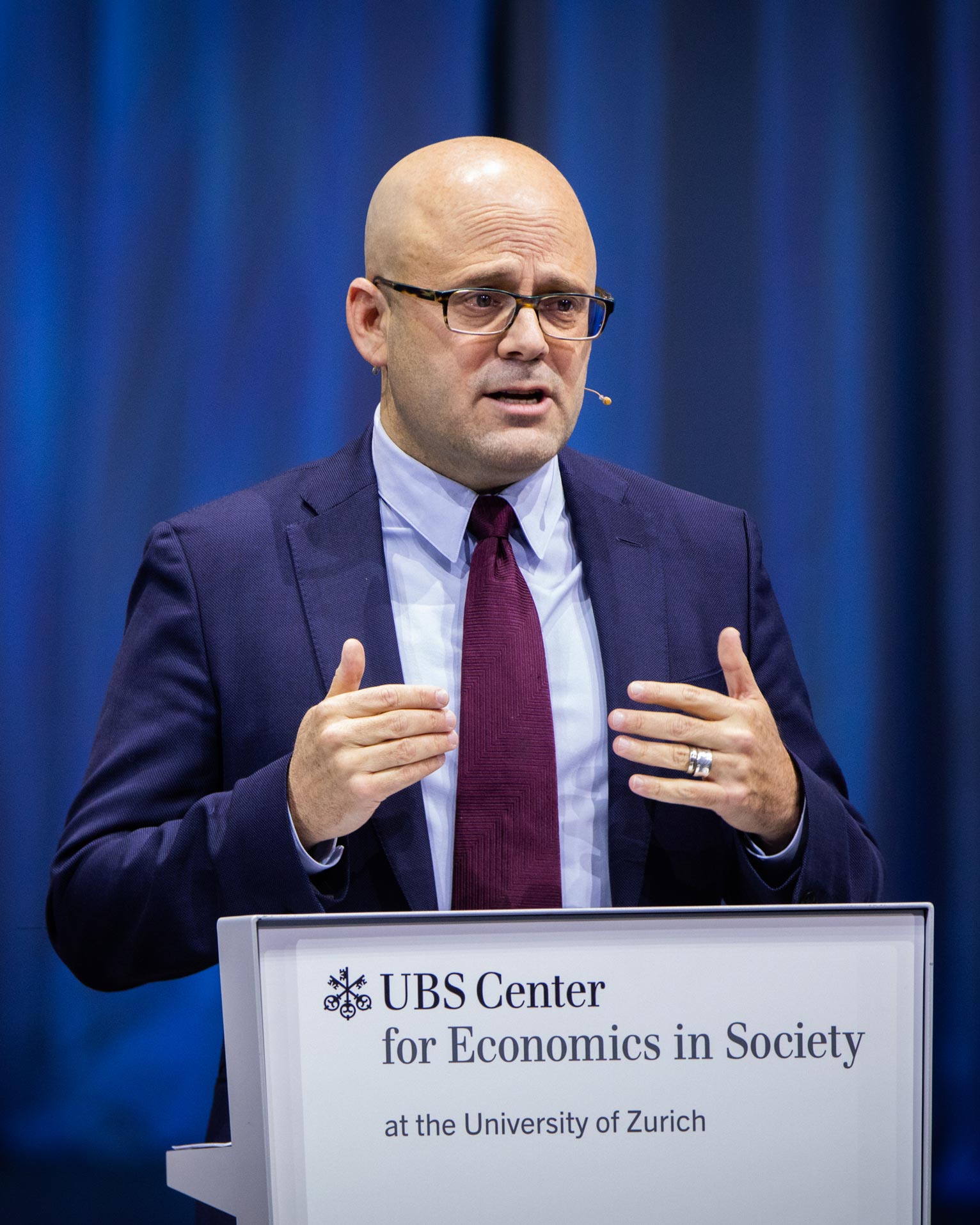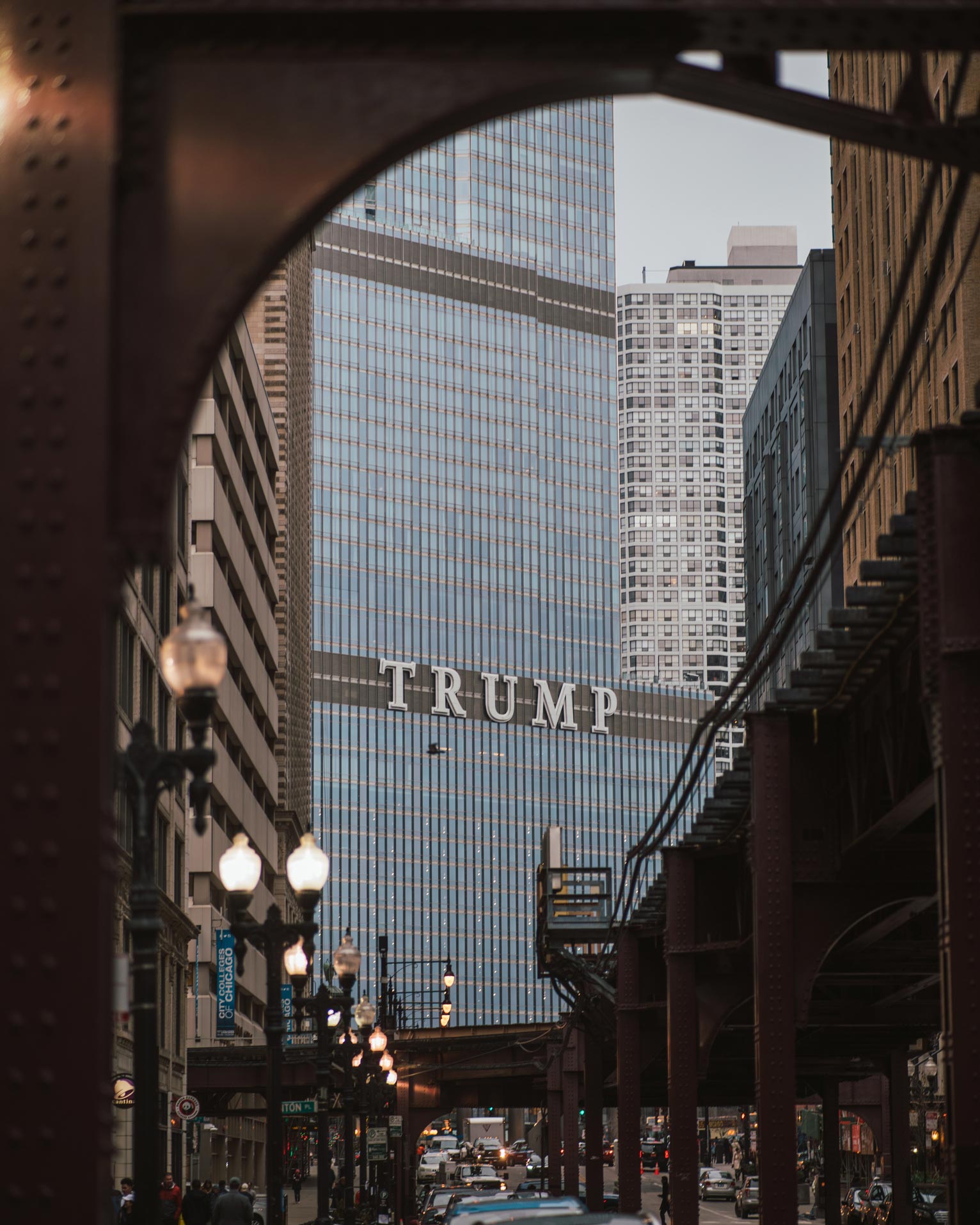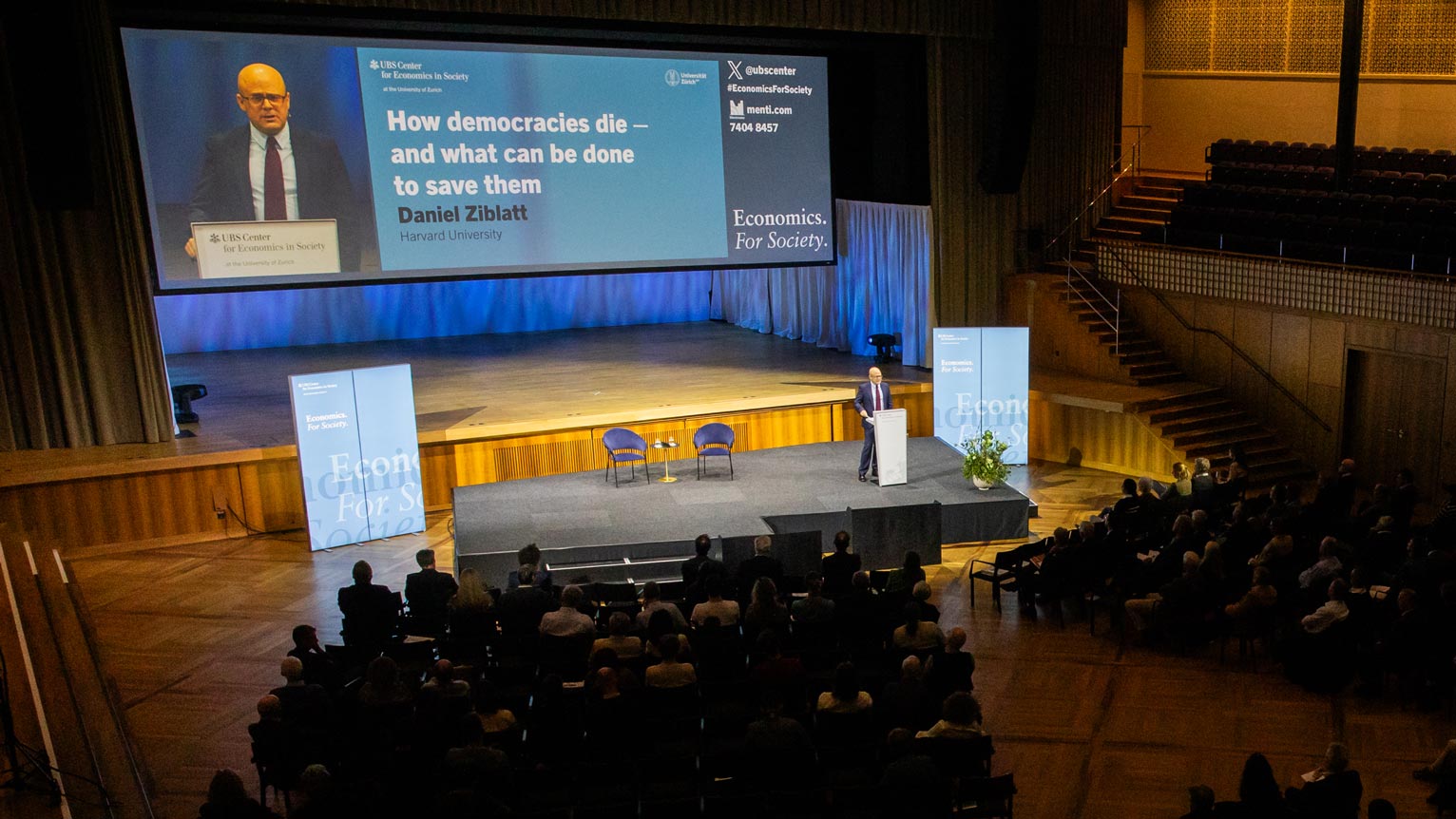Jump directly to
Democracy understander
Right-wing populists endanger democracies. Harvard political scientist Daniel Ziblatt provides a guide for preventing autocrats.
This interview by Alain Zucker was originally published in German in NZZ am Sonntag on 2.12.2023. Translated and edited for layout purposes by the UBS Center.
In Europe, right-wing populists are on the rise: Geert Wilders won the elections in the Netherlands last week; Viktor Orban has been in power in Hungary for some time; and Giorgia Meloni is head of state in Italy. Are they a threat to the democratic rule of law?
These parties can become a threat. They often challenge the values and institutions of liberal democracy. But, apart from Hungary, the immediate impact in Western Europe has been limited so far. But this development points to a persistent problem: mainstream politicians have lost the ability to determine the central lines of political debate and have opened the door to outsiders who interfere with traditional forms of politics.
Does democracy have a legitimacy problem?
It remains the most effective and attractive model of governance in the world. But it has become more multipolar, and China and Russia have greater assertiveness, presenting their government systems as alternatives. Internally, Western democracies are also under duress because traditional identities are threatened in this globalized world. This is evident from the whole discussion about migration, which has benefited Geert Wilders. Moreover, the political problems of inequality and redistribution remain difficult.
Why do populists profit by questioning core democratic values such as fundamental rights or the outcome of elections? Voters hardly want a dictatorship.
Whether in the Netherlands, Germany, or the US, 20% to 30% of the populace sympathizes with the radical right, sometimes more, sometimes less. But it is not a majority, and that is different. The situation is not equally threatening, either: the United States experienced a democratic regression between 2016 and 2021. Western Europe, by contrast, has proved astonishingly resilient, for example, in the financial crisis that hit Greece, Spain, or Portugal hard. Such a crisis would have had very different effects in the 1930s. We tend to play down how successful democracies are.
Historically, when do democracies die and why?
A rapid heart attack, a slow cancer: it is the same as in human life. Democracies die in sudden military coups, but they can also perish at the hands of elected leaders. Recent examples have been rather slow, because democracy today is still the international benchmark and indispensable as a front. But the trend is worrying. After the fall of the Berlin Wall, we saw that democracies were blossoming. Not all countries were ready for this, partly because their per capita incomes were still too low. Today, we see a decline.
Populists like Wilders are not necessarily autocrats. When does it become dangerous for a democracy?
The distinction is important. We adhere to the criteria laid down by the Spanish political scientist Juan Linz. Criterion one: politicians must accept elections, whether they have won or lost. Criterion two: they must not use force to try to gain or remain in power. Criterion Three: A truly democratic party must explicitly and openly distance itself from groups that violate the first two criteria. This third criterion is perhaps the most difficult, because many parties have people on their fringes who violently challenge the constitutional order. To isolate their fringes, parties should also associate with the ideological opponent.
Why is the third criterion so important?
History has shown that politicians who look like mainstream politicians in their suits and ties often facilitate the rise of extremists in the first place. In the end, they are the ones who get a democracy into trouble.
When an extremist in disguise comes to power. How does he undermine democracy?
The analogy with soccer is helpful. First, the hidden autocrat tries to undermine the neutral referee and draw him to his side. In a democracy, these are judicial bodies such as prosecutors and judges. Second, the attack on the opponent begins. The opposition is attacked in politics, media, and civil society. And thirdly, the autocrat tries to change the rules of the game in his favor. This means, for example, redefining electoral districts to create secure seats for his own party. These three steps can legally establish an autocratic system.
Is that how Viktor Orban did it?
Like Donald Trump, he was once voted out. When he came back, he decided that this should not happen to him again. In fact, he manipulated the system in such a way that he has never lost since. It is the opposite of Marx’s dictum that history happens once as a tragedy, the second time as a farce. In Hungary, tragedy happened the second time. My fear is that Trump will try something similar in 2024 if he wins.
Are you afraid that Trump might actually undermine American democracy?
Comparing the US to Viktor Orban’s Hungary or Vladimir Putin’s Russia is exaggerated. But now, every US election feels like a national emergency. To be sure, it is an important election, for the future of democracy, for the future of NATO, for the world – and for our ability to address urgent problems like climate change.
What happens if he is actually elected?
When Donald Trump became president in 2016, he followed his instincts, but today it is different: he has had time to consider his position, and his resentment toward Democrats and some of the Republicans has grown. There is thus a real risk that he will abuse the state for his personal ends. An authoritarian strategy would be to attack neutral institutions – such as the judiciary. He himself has already said that he wants to use the FBI against political opponents!
Aren’t you a little alarmist now?
The danger is real. But there will also be great resistance. The democratic opposition is well-organized and well-funded. We have robust institutions, judges who value their independence and stand up to politicians, we have states, federal employees, and civil society that is resistant. It will not be easy to kill American democracy. But Trump’s election is likely to lead to chaos, unrest, and instability.
America has never been more multi-ethnic, there have never been more mixed marriages. How does this fit in with the anti-democratic sentiment of Trump Republicans?
The core of Trump’s movement is a response to precisely this transformation of society. We are witnessing a polarization of lifestyle: while the Democrats have become more multi-ethnic and urban with American society, the Republican Party has become more and more the party of the white, rural population. Both sides believe that our nation is in danger if the other comes to power. To prevent this, Trump Republicans, in particular, are willing to tolerate the curtailment of democratic rights. Radicalization also stems from the fact that the party has had increasing difficulty in winning majorities. In seven of the last eight presidential elections, it failed to win a popular majority. Trump, for example, won only because of the electoral system that favors rural areas.
So does a retreat threaten democracy?
Ultimately, the Republicans will have to transform themselves into a multi-ethnic party that also includes African-Americans and Latinos. No matter how conservative it is, it would be a good sign, because Republicans would no longer have to fear democracy. People could argue about specific policy ideas again.
Germany experienced the most extreme death of a democracy when Hitler came to power. What lessons are still valid today?
Hitler’s Nazi party also came to power with the help of democratic instruments. It had great support in the elections, but it did not have a majority. Nevertheless, Hitler managed to take power, thanks to mainstream politicians. We must remember that. When parties in their hubris join outsiders in order to hold on to power, the shot often backfires. They must show their colors! In this regard, Brazil’s leaders were more resistant than many Republicans last year. All but Bolsonaro’s most loyal supporters accepted his defeat.
How do left-wing and right-wing attacks on democracy differ?
Not at all! At times, the left has also been a threat, such as in Venezuela with Hugo Chávez. And, suppose that Trump is elected for the second time only thanks to the electoral system, without a popular majority: for many young Americans, this will increasingly provoke a crisis of legitimacy. Then, great pressure from the left on democratic institutions can be expected.
Where did the collapse of a democracy surprise you the most?
Nobody has ever asked me that! The answer is probably Hungary. In the 1990s, Hungary was the model country in a post-communist world. It had experienced the Western tradition in its history, later experienced a gentler version of communism than others, and quickly became a member of the EU and NATO. In the eyes of the experts, everything spoke in favor of a democratic Hungary. It was not foreseeable that this country of all those in Europe would develop into a kind of autocracy.
Can democracy come too soon for a country?
What is certain is that rich democracies do not die. Rich is relative: whenever per capita gross domestic product exceeded $17,000 a year, no democracy has failed in the last hundred years. Despite all the problems, that would speak for the US at the moment.
Why is the wealth of a country decisive?
Wealth itself does not guarantee anything; it is about what wealth is related to. Wealthy societies are more pluralistic because there are different social interests that balance each other. In poorer countries, however, an elite dominates the system. But I do not want to be taken to mean that poor countries should not become democratic. But the obstacles are higher.
Are direct democracies like the Swiss one as safe as we think?
Along with income, age is the most important indicator of stability. No democracy older than fifty has died in the last century. In that sense, you are secure! Like others, you have developed a set of unwritten political norms over the years that most of the populace adheres to – that strengthens democracy. In Switzerland, for example, these are norms of restraint. In the US, however, we have seen what happens when a political leader attacks this silent agreement. If dissatisfaction with the status quo is high enough, these norms can be very weak and democracies vulnerable.
Are we in an age when democracies and autocracies are fighting for geopolitical dominance?
Yes, but autocrats regularly underestimate democracy. All they see is the disorder, the populism, the demonstrations, and they think, “How can they compete with us?” What they misunderstand is that they witness constant self-correction. Transparency may look like weakness, but it is a source of strength. In the long term, democracies do better than autocratic governments, the research is clear. Autocratic systems fight their battles behind closed doors, so they collapse overnight. Think of the fall of the Berlin Wall.
Democracies are also to some extent non-transparent. The lobbying, the backroom deals of elites, the obstruction of voters. When does democracy end and autocracy begin?
The boundary is gradual. Democracies are built on three pillars, and they can be stable in different ways. First, how much political competition is there? The more, the better. Second, do citizens have the right and the ability to organize themselves politically and to vote? This has often not been true for everyone in democracies, just think of the late introduction of women’s suffrage. The third pillar is human rights and the protection of minorities.
What gives you hope that democracy’s crisis of legitimacy will pass?
I am hopeful that the majority of the citizens in our democracies are in favor of democracy! From that point of view, we have already won.
Will you say the same if Trump is elected in 2024?
I can say with some certainty that even if he is elected, it will not be with half the vote or more, but only because of the electoral system. Trump has never had more than 50% approval in polls, either. Only when Trump wins a popular majority will I question my faith in democracy.
Right-wing populists endanger democracies. Harvard political scientist Daniel Ziblatt provides a guide for preventing autocrats.
This interview by Alain Zucker was originally published in German in NZZ am Sonntag on 2.12.2023. Translated and edited for layout purposes by the UBS Center.
In Europe, right-wing populists are on the rise: Geert Wilders won the elections in the Netherlands last week; Viktor Orban has been in power in Hungary for some time; and Giorgia Meloni is head of state in Italy. Are they a threat to the democratic rule of law?


Quotes
Democracies under threat
Daniel Ziblatt’s lecture was the curtains of a three-part series of events organized by the UBS Center for Economics in Society under the theme Democracies under threat. The series was kicked-off with Wolfgang Schäuble's lecture on 24 October at Universität Zürich. He is a German CDU politician, former Finance Minister, and the longest-serving member of the German Bundestag. Steven Pinker’s lecture followed at Universität Zürich on 7 November. The psychologist and bestselling author talked about rationality and its significance for liberal democracy. The highlight of the series was the annual Forum for Economic Dialogue on 13 November at the Kongresshaus Zürich, where the topic 'Democracies under threat' was examined and discussed with Nobel Prize laureate Herta Müller, democracy experts Jason Brennan and Daniel Ziblatt, and many other speakers.
Daniel Ziblatt’s lecture was the curtains of a three-part series of events organized by the UBS Center for Economics in Society under the theme Democracies under threat. The series was kicked-off with Wolfgang Schäuble's lecture on 24 October at Universität Zürich. He is a German CDU politician, former Finance Minister, and the longest-serving member of the German Bundestag. Steven Pinker’s lecture followed at Universität Zürich on 7 November. The psychologist and bestselling author talked about rationality and its significance for liberal democracy. The highlight of the series was the annual Forum for Economic Dialogue on 13 November at the Kongresshaus Zürich, where the topic 'Democracies under threat' was examined and discussed with Nobel Prize laureate Herta Müller, democracy experts Jason Brennan and Daniel Ziblatt, and many other speakers.
